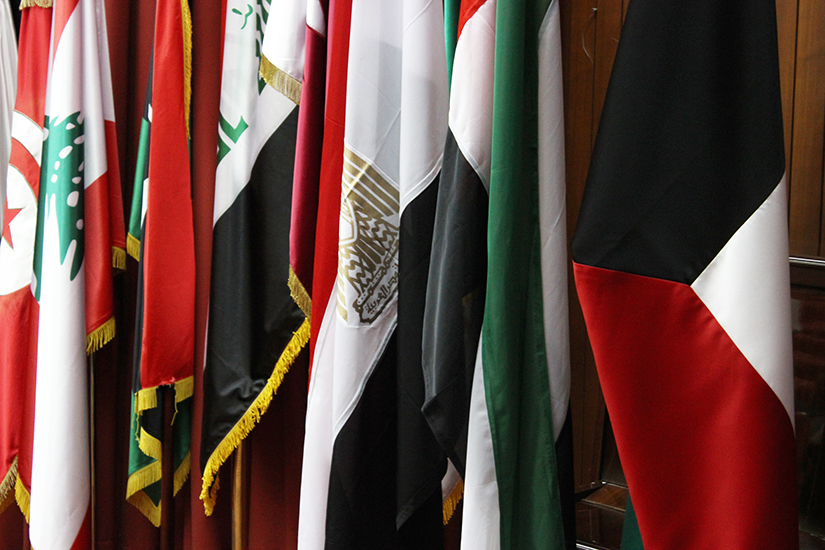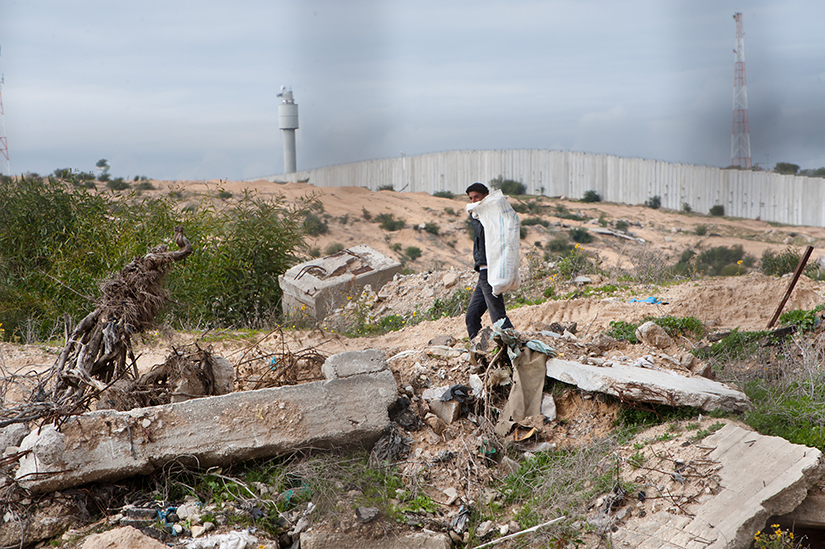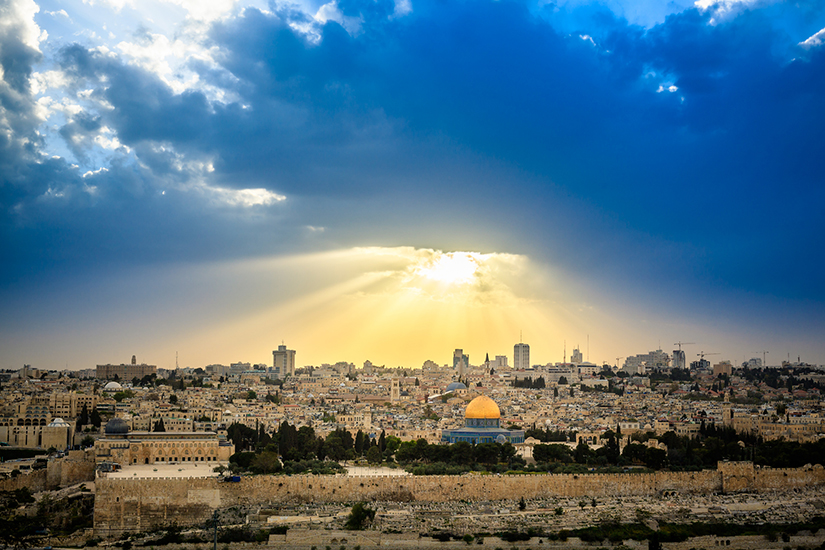The Gaza conflict and regional situation since 2023
The Gaza conflict began in October 2023 between Israel and Hamas and others in the Gaza Strip in Palestine, and the war zone has since expanded to neighboring countries, leading to unprecedented military clashes between Israel and Iran. There are three main factors behind these developments. Firstly, the Assad regime in Syria and non-state organizations in Palestine, Lebanon, Iraq, Yemen, and other countries gained strength from Iran’s support, including weapons and funds, to anti-Israel forces; secondly, Israel has enhanced its intelligence and military capabilities to ensure its security and maintained a posture enabling deployment at any time; and thirdly, despite being a region with many conflicts, the Middle East region does not have a permanent organization for multilateral consultations with the objective of conflict prevention and security policy coordination.
In the Gaza Strip, the ceasefire finally issued on January 19, 2025, effectively collapsed when the Israeli military launched airstrikes against the entire Gaza Strip in the early hours of March 18. Prime Minister Benjamin Netanyahu of Israel stated that the reason for the resumption of attacks was that Hamas had rejected proposals to secure a ceasefire extension.[1] Furthermore, the Israeli military resumed air strikes on southern Lebanon on March 28, violating the ceasefire with Lebanon, and it has continued attacks on Syrian territory even after the collapse of the Assad regime in December 2024. It has been reported that Israel’s Netanyahu administration continues to maintain an intention to attack Iran’s nuclear facilities in order to stop that country acquiring nuclear weapons.[2]。
Meanwhile, as a move attempting to contain conflict in the Middle East region, a Gaza Strip reconstruction plan was agreed at the Arab League Summit on March 4. In this paper, we briefly look back at and analyze the historical background to this solidarity among Arab countries, and then discuss the extent to which that solidarity will contribute to the containment of conflict.

The solidarity of the Arab countries in their policies toward Israel
Regional organizations comprised of Arab countries currently include the Arab League, which has 22 member countries and one member region (Palestine), the Gulf Cooperation Council (GCC) comprised of six Gulf Arab countries, and the Arab Maghreb Union (AMU), which is made up of five Arab countries in North Africa. Of these, the Arab League recognizes the Palestine Liberation Organization (PLO), which was founded in 1964, as the sole representative of the Palestinian people, and has shown solidarity with Palestine by promoting policy coordination among its member countries regarding anti-Israel strategies. For example, it imposed economic sanctions on Israel (the “Arab Boycott”) during the Fourth Arab–Israeli War in 1973, continued the sanctions after the war, and closed down Israeli representative institutions in Arab countries during the Second Intifada (Palestinian civil uprising) in September 2000.
This solidarity frayed when Egypt and Jordan concluded peace treaties with Israel in 1979 and 1994, respectively. The trigger for restoration of solidarity was the approval of the Arab Peace Initiative, a peace plan between Israel and Arab countries proposed by Saudi Arabia’s Crown Prince Abdullah at the Arab League Summit held in Beirut in 2002. The Initiative called on Israel to (i) completely withdraw from the territories occupied since the 1967 war, (ii) recognize the right of return of Palestinian refugees based on UN General Assembly Resolution 194, and (iii) recognize the establishment of a Palestinian state with East Jerusalem as its capital, and stated that the Arab countries would ensure Israel’s security and normalize relations on the condition that Israel fulfills these requirements. Moreover, the Arab Peace Initiative was reaffirmed at an Arab League Summit in Riyadh in March 2007, and the following month it was presented to Israel by the foreign ministers of Egypt and Jordan. However, Israel ignored it and the United States avoided responding to it.
Subsequently, in 2020, the normalization of diplomatic relations between Israel and the United Arab Emirates (UAE), Bahrain, Morocco, and Sudan known as the Abraham Accords, which was carried out under the first Trump administration in the United States, once again caused differences in perceptions of the Palestinian issue to surface among Arab League member states. The cross-border attacks on Israel by Hamas, Palestinian Islamic Jihad, and others in October 2023 can be attributed in part to the sense of crisis over these changes in Arab countries’ policies toward Israel. Despite the Gaza conflict beginning in this way, the Initiative, which was born out of Saudi Arabia’s efforts to restore Arab solidarity, has become the foundation of the Arab League member states’ policies toward Israel.
Presentation of a vision for the reconstruction of Gaza by the Arab League
In response to President Trump’s statements in January and February 2025 regarding his vision of displacing the residents of the Gaza Strip to other territories, ownership of the Gaza Strip by the United States, and so on,[3] the leaders of seven countries, Egypt, Jordan, Qatar, Saudi Arabia, the UAE, Kuwait, and Bahrain, gathered in Saudi Arabia on February 21 to consider an alternative plan.[4] The original plan was prepared by Egypt, and a vision for the reconstruction of Gaza was completed after multiple diplomatic talks among Egypt, Jordan, Qatar, Saudi Arabia, and the UAE ahead of the Arab League Summit in Cairo on March 4.[5] This proposed reconstruction plan calls for a first phase of six months to spend three billion dollars on removing rubble and building temporary housing, a second phase of two years to spend 20 billion dollars on housing construction, and a third phase of two and a half years to spend 30 billion dollars on the construction of an airport, sea ports, an industrial zone, and other infrastructure.[6]
At the Cairo Summit, the reconstruction plan was approved and a statement outlining the reconstruction vision was compiled. Based on the 2002 Arab Peace Initiative, the statement reiterated previous assertions concerning the rights of the Palestinian people, including, among others, (i) achievement of a just and comprehensive peace, (ii) intensification of cooperation with international and regional powers, including the United States of America, (iii) ending the Israeli occupation, and (iv) a two-state solution. Furthermore, the statement presented new items, including (i) rejection of any form of forced displacement of people living in the Gaza Strip, (ii) categorical rejection of Israel’s decision to block entry of humanitarian assistance to the Gaza Strip and affirmation that these measures constitute a violation of the ceasefire agreement, international law, and humanitarian international law, (iii) formation of a Gaza Administration Committee with the participation of the Palestinian National Authority to be in charge of practical matters during the transitional period of reconstruction of Gaza, (iv) urging the international community and international and regional financial institutions to swiftly provide the necessary resources for the plan, (v) calling upon the United Nations Security Council to deploy peacekeeping forces for the security of Palestine and Israel, (vi) demands for the cessation of Israel’s military activities in the West Bank, Syria, and Lebanon, and (vii) urging nations to implement the advisory opinions of the International Court of Justice.[7] However, the statement did not specifically mention (i) disarmament of Palestinian armed organizations such as Hamas and others, (ii) elections and reforms to ensure the legitimacy of the governing body of Palestine, (iii) the provision of funds by Arab countries in the reconstruction phase, and other matters which are thought to be necessary for peacebuilding in the Gaza conflict.[8]
As described above, Arab League member states presented a five-year Gaza reconstruction plan as a short-term goal and presented the building of a peaceful environment in the Middle East region predicated on the establishment of a Palestinian state as a long-term goal.

Will the Arab League’s vision for the reconstruction of Gaza have a conflict containment effect?
The Arab League showed solidarity at a critical juncture in the current Gaza conflict. It also left a strong impression on the international community of the sense of solidarity among Arab countries in their pursuit of a “two-state solution” to the Palestinian issue through peace negotiations. Immediately after the Arab Summit, the United States and Israel indicated their intention not to accept this vision of reconstruction.[9] However, an extraordinary meeting of the Council of Foreign Ministers of the Organisation of Islamic Cooperation (OIC) held in Saudi Arabia on March 8 (with the participation of 57 countries) declared its support for the Arab League’s vision for the reconstruction of Gaza[10] and following this, on the same day, the foreign ministers of France, Germany, Italy, and the United Kingdom also issued a joint statement supporting it.[11] It can be concluded that the Arab League was able to form solidarity in support of Palestine that transcends the Arab framework. It appears that this influenced President Trump as well and on March 12 he made the statement that “nobody is expelling any Palestinians” from Gaza, seemly changing his thoughts on relocating the people living in Gaza.[12]
However, the Arab League’s vision for the reconstruction of Gaza has so far failed to bring about a permanent ceasefire in the Gaza Strip or the release of hostages, and the humanitarian situation in the Gaza Strip continues to deteriorate. In March, the Israeli military resumed its attacks on Gaza and since then more than 1,600 Palestinians have been killed in the Gaza Strip.[13] As things stand, it is difficult to conclude that the diplomatic efforts of the Arab League have been effective in containing the conflict. However, the future design presented by the Arab League of a ceasefire in the Gaza conflict, reconstruction, and recognition of a Palestinian state has contributed to strengthening solidarity among the countries in the region. This is thought to have led to a new proposal by Egypt and Qatar for the resumption of ceasefire negotiations.[14] Furthermore, it also led to Palestinian National Authority President Mahmoud Abbas calling in a televised address on April 23 for an end to the Gaza conflict so that a Palestinian state can be established.[15] It is hoped that this series of developments will have a positive impact on President Trump’s visits to Saudi Arabia, Qatar, and the UAE scheduled for May 13 to May 16, as well as the international conference on the Palestinian issue that Saudi Arabia and France plan to co-chair in June.

(2025/06/06)
Notes
- 1 James Mackenzie, Nidal Al-Mughrabi and Emily Rose, “Israel warns more to come as airstrikes kill over 400 in Gaza after two months of truce,” Reuters, March 19, 2025; There is also a view that the Netanyahu administration resumed fighting in order to bring the far-right party "Otzma Yehudit" (Jewish Power), which had left the coalition in protest of the ceasefire agreement with Hamas in January 2025, back into the government and to secure the passage of the 2025 budget. Failure to pass the budget by March 31 would have led to the government’s dissolution and a snap election. “Israel’s ‘Endless War’ to Stay in Power—Annihilating Hamas Seen as Unrealistic: One week since Israel resumed strikes on Gaza,” Jiji Press, March 25, 2025.
- 2 Erin Banco, “Exclusive: Israel still eyeing a limited attack on Iran's nuclear facilities,” Reuters, April 19, 2025.
- 3 On January 25, President Trump spoke to reporters aboard Air Force One about a plan to relocate residents of the Gaza Strip outside the region. Betsy Klein and Lex Harvey, “Trump suggests his plan for Gaza Strip is to ‘clean out the whole thing’,” CNN, January 26, 2025; Later, on February 4, during a joint press conference with Israeli Prime Minister Netanyahu, he expressed the idea that the United States could take ownership of the Gaza Strip. Kevin Liptak, “Trump says US will ‘take over’ Gaza Strip and doesn’t rule out using American troops,” CNN, February 4, 2025.
- 4 “Arab leaders discuss alternative to Trump Gaza plan at Saudi Arabia meet,” Al Jazeera, February 21, 2025.
- 5 Amr Hamzawy, “The Arab States’ Remarkable Moves to Push Peace in Gaza,” Carnegie Endowment for International Peace, March 6, 2025.
- 6 “What is Egypt’s plan for the reconstruction of Gaza?” Al Jazeera, March 4, 2025.
- 7 “Cairo Statement Issued by the Extraordinary Arab Summit (Palestine Summit),” The Arab Republic of Egypt Presidency, March 5, 2025.
- 8 See Jūichi Inada (ed.), Conflict and Reconstruction Assistance: The International Community’s Response toward Peacebuilding, Yuhikaku, 2004, pp. 54–55.
- 9 Ahmed Shawkat, “U.S., Israel reject Gaza reconstruction plan backed by Arab nations,” CBS News, March 5, 2025.
- 10 “Muslim nations, European leaders back Arab proposal for Gaza,” Al Jazeera, March 8, 2025.
- 11 Ibid.
- 12 This remark came in response to a reporter’s question during a meeting with Irish Prime Minister Martin. Andrea Shalal and Gram Slattery, “Trump, Irish leader meet amid differences on Gaza war, trade,” Reuters, March 13, 2025.
- 13 James Mackenzie, “Israeli strikes hit dozens of targets in Gaza as ceasefire efforts stall,” Reuters, April 19, 2025; According to the Palestinian Ministry of Health, as of April 18, 2025, the death toll since October 2023 has reached 51,065. “Israeli bombardment of Gaza kills 92 in two days: Health Ministry,” Al Jazeera, April 15, 2025.
- 14 Rushdi Abualouf and Raffi Berg, “New Israel-Gaza ceasefire plan proposed, Hamas source tells BBC,” BBC, April 22, 2025. According to the BBC, citing a Palestinian official, Hamas has indicated its intention to hand over governance of the Gaza Strip to an organization agreed upon at the “national and regional levels. The organization is believed to refer to the Gaza administrative committee agreed upon at the Arab League summit.
- 15 Ibrahim Dahman, Pauline Lockwood and Oren Liebermann, “Palestinian Authority president calls Hamas ‘sons of dogs,’ demands release of hostages and disarmament,” CNN, April 23, 2025. In his speech, Mahmoud Abbas urged Hamas to refrain from bearing arms and to transition into a legitimate political party.

